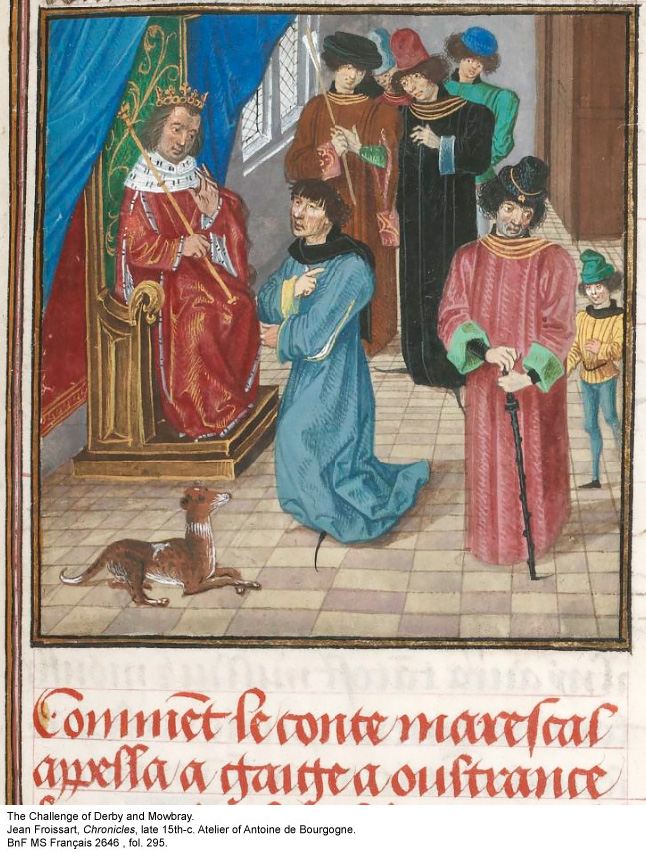Shakespeare created the opening scene of his Richard II based on an actual historical event and depicted the three main characters, regarding the death of Gloucester, in the following way: Henry Bolingbroke accuses Thomas Mowbray of plotting his death; Mowbray denies his involvement but acknowledges his neglect; whilst there is no implication of possible involvement of the king himself. In addition, accusation on Mowbray is further emphasised in the very next scene, where the widowed Duchess of Gloucester blames her husband’s death as ‘Mowbray’s sin’ (http://absoluteshakespeare.com/plays/richard_II/richard_II.htm). Nonetheless, the plot of the play after the opening scene goes basically in tune with what actually happened in the final few years of the fourteenth century. For example:
 |
| The Challenge of Mowbray and Derby (Bolingbroke), before Richard II |
The dispute between Bolingbroke and Mowbray was decided to be settled by a single combat, which was to be held in Coventry, however, ‘when on the 10th of September 1398 everything was ready for the fight Richard interposed and ordered both combatants into banishment’ (http://www.luminarium.org/encyclopedia/thomasmowbray.htm). Then, ‘within fifteen days Henry, Duke of Hereford, was ordered to leave the realm, not to return for ten years, unless ordered by the King, on pain of death. He was, however, given a yearly income of £2,000. This was small comfort, for the secretary had one more announcement for him: his estates were to be confiscated. As for Mowbray… he was to leave the realm and never return, upon pain of death. He was given a yearly income of £1,000, and his property was confiscated. Both were then summoned to stand before the King and swear an oath that they would not continue the argument. This they did’ (https://books.google.co.uk/books?id=Oqk7AwAAQBAJ&pg=PT28&lpg=PT28&dq=henry+hereford+coventry+exile+years&source=bl&ots=6tS6ZfusSp&sig=bZsIyW). In addition, whilst Henry’s exile was ‘reduced by his father’s pleading by four years’ (ibid) before his departure, Mowbray ‘is said to have died of melancholy in Venice – though some sources say it was of “pestilence”, or plague’ (ibid) in September 1399.
For reading the text in full: https://wrex2009.wordpress.com/2015/05/25/richard-ii-the-play-and-the-history/
No comments:
Post a Comment